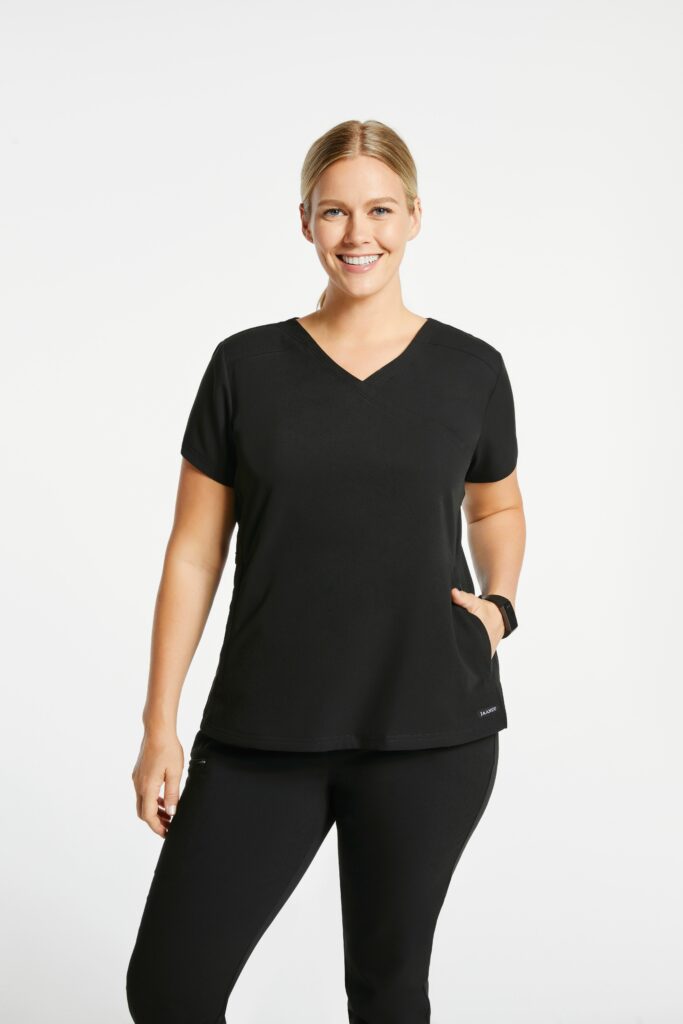
How Long Is Nursing School? Your Guide to Becoming a Nurse
One of the most popular nursing school memes features a skeleton pouring over a textbook. The words on the image read “almost done studying.” And we could see how this satirical joke about the length of nursing school could scare almost anyone off. But rest assured, getting your nursing education won’t take a lifetime. You’ll graduate in just a few years.
While the road to becoming a nurse may seem long, we certainly feel it’ll be one of your most cherished and fondest memories. And, if you were looking for not only an explanation of how long it’ll take to complete this stage of your nursing career but also guidance on what to expect, you’re in luck!
Let’s dive in to find out which degree you should pursue, currency job opportunities and more, along with some FAQs. After all, if you head into nursing school with a good idea of the challenges ahead and a plan to take care of yourself, a four-year nursing program may actually feel like four years.
The journey of getting into nursing school
Nursing school starts even before you set foot in a classroom, so build time into your plan for career research and applications. Here’s how to get started:

Define your career path
The first question to ask yourself when choosing a nursing program is how quickly you want to start work and in what capacity. Various factors will influence your answer. Perhaps you have financial commitments and need to start work as quickly as possible. Maybe you’re just eager to get into a patient-facing healthcare role. Knowing how long you can spend in school right now will help you choose a degree.
Choose a degree
The following are common nursing programs, listed from the shortest to longest. The more years of schooling you have, the more responsibilities you’ll be able to take on at work. And roles that require more education often pay better.
- Certified nursing assistant (CNA) certificate or diploma
- Licensed practical nurse (LPN)/licensed vocational nurse (LVN) certificate or diploma
- Associate Degree in Nursing (ADN)
- Bachelor of Science in Nursing (BSN)
- Master of Science in Nursing (MSN)
- Doctoral degree in nursing
Find a program that suits you
Consider how many hours you can dedicate to your schooling per week and if you have any geographic limitations, and start researching nursing programs. Don’t forget to look up scholarship and financial aid information at this time.

Research the admission prerequisites and apply
Nursing school requirements depend on the type of program to which you’re applying. For an LPN program, you’ll need to show your high school diploma, but a master’s program will require the transcript from your completed bachelor’s degree.
How long is nursing school?
When people say “nursing school,” they’re usually referring to a college-level degree that prepares candidates for the National Council Licensure Examination-Registered Nurses (NCLEX-RN) and licensure as a registered nurse (RN). There are two common educational paths for those wanting to become an RN: ADN or BSN. These degrees usually take from two to four years to complete, respectively.
But, as we showed in the list in the previous section, there are all sorts of nursing degrees. Becoming an RN is not the only career path in the field. You can start as an LPN or nursing assistant or go straight for your master’s or doctorate and teach at the university level. Here’s the average amount of time it takes to complete each of the common degrees:
- CNA certificate or diploma: 4-12 weeks
- LPN/LVN certificate or diploma: one year
- ADN program: two years
- BSN degree: four years
- MSN program: two to three years
- Doctoral degree in nursing: approximately three years (for the Doctorate of Nursing Practice, or DNP)
Timing FAQs
- How long is nursing school if you have a bachelor’s? If you already have a bachelor’s degree, just not in nursing, you can do an accelerated nursing degree program, which can take anywhere from one to two years.
- How long is nursing school after undergraduate? The only degree you need to start your career as an RN is an undergraduate one, so nursing school is technically over after you get it. But, if you want to earn a master’s or doctorate, plan for another 2-3 years of schooling.
- Is the 2-year nursing degree salary the same as a 4-year degree? Whether you have an associate’s or bachelor’s degree, you can start in an entry-level RN role, which pays around $65,000 annually.

What should you know before starting nursing school?
If you have questions like “Is nursing school hard” and “How can I set myself up for success,” here are a few considerations to keep in mind:
- Nursing school may feel overwhelming at first, but that’s normal. Keep up with your coursework, remember the end goal and look for support wherever and whenever you can get it.
- Work-life balance is essential. Don’t skip out on self-care, therapy and time with family and friends. You will get it all done, and your mental health will improve if you take breaks.
- It’s essential to identify a study method that works for you. If you’re a visual learner, download study apps with video content. If you’re an auditory one, use a voice recorder during lectures and play them back later.
- Working part-time while studying can help you gain professional experience for your resume and earn money to cover your living costs or help you pay back student loans.
Job opportunities for nurses
Before you set out on your educational journey in the nursing profession, you should research the different roles you can potentially hold. For example, you can’t become a nurse anesthetist with an associate’s or even a bachelor’s degree, as you’ll have to take a specialization course. So, if you have a dream career, define the level of education you’ll need before you start.
But, if you’re a bit unclear and don’t exactly know what you want to do, that’s totally normal. You can start your career in an entry-level nurse assistant role or as an RN and figure out what your interests are in the field. It’s never too late to make a career shift, and there are more than 100 ways to specialize in nursing. Here are just a few:
- Critical care nurse (CCN)
- Advanced practice registered nurse (APRN)
- Nurse practitioner (NP)
- Nurse midwife
- Oncology nurse
- Telehealth nurse
- Pediatric nurse
- ICU nurse
- Nurse educator
- Nurse researcher
- Forensic nurse
- Public health nurse
Are you all set to embark on this journey? We wish you all the luck and hope this new chapter of your life is full of high points. We’re also here with plenty of career content to read when you need a break from your nursing school textbooks. So start nursing school with a pair of comfortable, high-performance, quality scrubs at a discount (that’s our way of wishing you well!).